 W
WFrances Elizabeth Allen was an American computer scientist and pioneer in the field of optimizing compilers. Allen was the first woman to become an IBM Fellow and in 2006 became the first woman to win the Turing Award. Her achievements include seminal work in compilers, program optimization, and parallelization. She worked for IBM from 1957 to 2002 and subsequently, was a Fellow Emerita.
 W
WAndrew Wilson Appel is the Eugene Higgins Professor of computer science at Princeton University. He is especially well-known because of his compiler books, the Modern Compiler Implementation in ML (ISBN 0-521-58274-1) series, as well as Compiling With Continuations (ISBN 0-521-41695-7). He is also a major contributor to the Standard ML of New Jersey compiler, along with David MacQueen, John H. Reppy, Matthias Blume and others and one of the authors of Rog-O-Matic.
 W
WJohn Warner Backus was an American computer scientist. He directed the team that invented and implemented FORTRAN, the first widely used high-level programming language, and was the inventor of the Backus–Naur form (BNF), a widely used notation to define formal language syntax. He later did research into the function-level programming paradigm, presenting his findings in his influential 1977 Turing Award lecture "Can Programming Be Liberated from the von Neumann Style?"
 W
WRichard Simpson Bird is a Supernumerary Fellow of Computation at Lincoln College, University of Oxford, in Oxford England, and former director of the Oxford University Computing Laboratory.
 W
WPer Brinch Hansen was a Danish-American computer scientist known for his work in operating systems, concurrent programming and parallel and distributed computing.
 W
WLuca Andrea Cardelli FRS is an Italian computer scientist who is a Research Professor at the University of Oxford in Oxford, UK. Cardelli is well known for his research in type theory and operational semantics. Among other contributions, he helped design Modula-3, implemented the first compiler for the (non-pure) functional programming language ML, and defined the concept of typeful programming. He helped develop the Polyphonic C# experimental programming language.
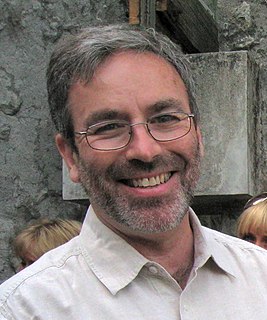 W
WJames Reginald Cordy is a Canadian computer scientist and educator who is Professor Emeritus in the School of Computing at Queen's University. As a researcher he is most recently active in the fields of source code analysis and manipulation, software reverse and re-engineering, and pattern analysis and machine intelligence. He has a long record of previous work in programming languages, compiler technology, and software architecture.
 W
WPatrick Cousot is a French computer scientist, currently Silver Professor of Computer Science at the Courant Institute of Mathematical Sciences, New York University, USA. Before he was Professor at the École Normale Supérieure (ENS), Paris, France, the École Polytechnique, Palaiseau, France and the University of Metz, France and a Research Scientist at the French National Center for Scientific Research (CNRS) at the Joseph Fourier University, Grenoble, France.
 W
WRadhia Cousot was a French computer scientist known for inventing abstract interpretation.
 W
WOlivier Danvy is a French computer scientist specializing in programming languages, partial evaluation, and continuations. He is a Professor at Yale-NUS College in Singapore.
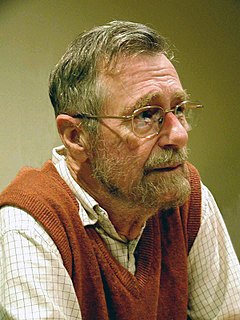 W
WEdsger Wybe Dijkstra was a Dutch computer scientist, programmer, software engineer, systems scientist, science essayist, and pioneer in computing science. A theoretical physicist by training, he worked as a programmer at the Mathematisch Centrum (Amsterdam) from 1952 to 1962. A university professor for much of his life, Dijkstra held the Schlumberger Centennial Chair in Computer Sciences at the University of Texas at Austin from 1984 until his retirement in 1999. He was a professor of mathematics at the Eindhoven University of Technology (1962–1984) and a research fellow at the Burroughs Corporation (1973–1984). In 1972, he became the first non-American, non-British, and continental European winner of the Turing Award.
 W
WRichard J. Fateman is a professor emeritus of computer science at the University of California, Berkeley.
 W
WMatthias Felleisen is a German-American computer science professor and author. He grew up in Germany and immigrated to the US when he was 21 years old.
 W
WWallace "Wally" Feurzeig was an American computer scientist who was co-inventor, with Seymour Papert and Cynthia Solomon, of the programming language Logo, and a well-known researcher in artificial intelligence (AI).
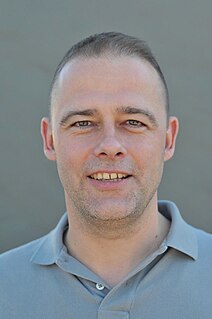 W
WMichael Franz is an American computer scientist best known for his pioneering work on just-in-time compilation and optimisation and on artificial software diversity. He is a Chancellor's Professor of Computer Science in the Donald Bren School of Information and Computer Sciences at the University of California, Irvine (UCI), a Professor of Electrical Engineering and Computer Science in the Henry Samueli School of Engineering at UCI, and Director of UCI's Secure Systems and Software Laboratory.
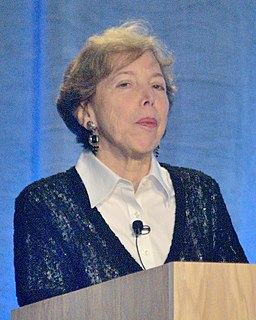 W
WSusan Lois Graham is an American computer scientist. Graham is the Pehong Chen Distinguished Professor in the Computer Science Division of the Department of Electrical Engineering and Computer Sciences at the University of California, Berkeley.
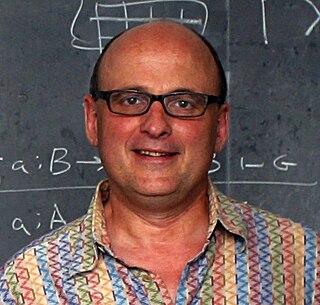 W
WRobert William "Bob" Harper, Jr. is a computer science professor at Carnegie Mellon University who works in programming language research.
 W
WSir Charles Antony Richard Hoare is a British computer scientist. He developed the sorting algorithm quicksort in 1959–1960. He also developed Hoare logic for verifying program correctness, and the formal language communicating sequential processes (CSP) to specify the interactions of concurrent processes and the inspiration for the programming language occam.
 W
WPaul Raymond Hudak was an American professor of computer science at Yale University who was best known for his involvement in the design of the Haskell programming language, as well as several textbooks on Haskell and computer music. He was a Chair of the Department, and was also Master of Saybrook College. He died on April 29, 2015 of leukemia.
 W
WR. John M. Hughes is a Swedish computer scientist and professor in the department of Computing Science at the Chalmers University of Technology.
 W
WJean David Ichbiah was a French computer scientist and the initial chief designer (1977–1983) of Ada, a general-purpose, strongly typed programming language with certified validated compilers.
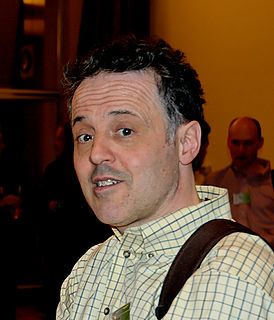 W
WGregor Kiczales is an American computer scientist. He is currently a full time professor of computer science at the University of British Columbia in Vancouver, British Columbia, Canada. He is best known for developing the concept of aspect-oriented programming, and the AspectJ extension to the Java programming language, both of which he designed while working at Xerox PARC. He is also one of the co-authors of the specification for the Common Lisp Object System, and is the author of the book The Art of the Metaobject Protocol, along with Jim Des Rivières and Daniel G. Bobrow.
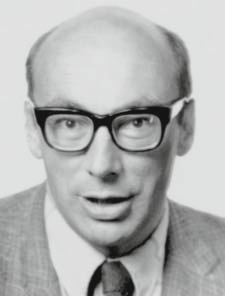 W
WPeter John Landin was a British computer scientist. He was one of the first to realise that the lambda calculus could be used to model a programming language, an insight that is essential to development of both functional programming and denotational semantics.
 W
WJohn Launchbury is an American and British computer scientist who is currently Chief Scientist at Galois, Inc. Previously, he directed one of DARPA’s technical offices, where he oversaw nation-scale scientific and engineering research in cybersecurity, data analysis, and artificial intelligence. He is known for research and entrepreneurship in the implementation and application of functional programming languages. In 2010, Launchbury was inducted as a Fellow of the Association for Computing Machinery.
 W
WBarbara Liskov is an American computer scientist who is an Institute Professor at the Massachusetts Institute of Technology and Ford Professor of Engineering in its School of Engineering's electrical engineering and computer science department. She was one of the first women to be granted a doctorate in computer science in the United States and is a Turing Award winner who developed the Liskov substitution principle.
 W
WErik Meijer is a Dutch computer scientist and entrepreneur. From 2000 to early 2013 he was a software architect for Microsoft where he headed the Cloud Programmability Team. He then founded Applied Duality Inc. in 2013. Before that, he was an associate professor at Utrecht University. Since 2015 he has been a Director of Engineering at Facebook. He received his Ph.D. from Nijmegen University in 1992.
 W
WBertrand Meyer is a French academic, author, and consultant in the field of computer languages. He created the Eiffel programming language and the idea of design by contract.
 W
WArthur John Robin Gorell Milner, known as Robin Milner or A. J. R. G. Milner, was a British computer scientist, and a Turing Award winner.
 W
WJohn Clifford Mitchell is professor of computer science and electrical engineer at Stanford University. He has published in the area of programming language theory and computer security.
 W
WRoger D. Moore was the 1973 recipient of the Grace Murray Hopper Award from the Association for Computing Machinery (ACM). It was given: "For their work in the design and implementation of APL\360, setting new standards in simplicity, efficiency, reliability and response time for interactive systems."
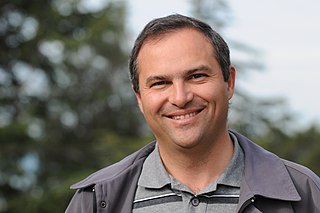 W
WGeorge Ciprian Necula is a Romanian computer scientist, engineer at Google, and former professor at the University of California, Berkeley who does research in the area of programming languages and software engineering, with a particular focus on software verification and formal methods. He is best known for his Ph.D. thesis work first describing proof-carrying code, a work that received the 2007 SIGPLAN Most Influential POPL Paper Award.
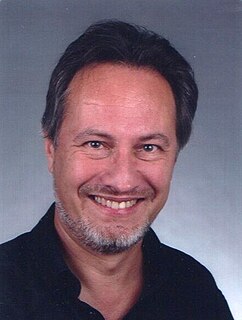 W
WOscar Marius Nierstrasz is a Professor at the Computer Science Institute (IAM) at the University of Berne, and a specialist in software engineering and programming languages. He is active in the field ofprogramming languages and mechanisms to support the flexible composition of high-level, component-based abstractions, and tools and environments to support the understanding, analysis and transformation of software systems to more flexible, component-based designs.
 W
WKristen Nygaard was a Norwegian computer scientist, programming language pioneer, and politician. Internationally, Nygaard is acknowledged as the co-inventor of object-oriented programming and the programming language Simula with Ole-Johan Dahl in the 1960s. Nygaard and Dahl received the 2001 A. M. Turing Award for their contribution to computer science.
 W
WMartin Odersky is a German computer scientist and professor of programming methods at École Polytechnique Fédérale de Lausanne (EPFL) in Switzerland. He specializes in code analysis and programming languages. He designed the Scala programming language and Generic Java both with others. He implemented the GJ compiler, and his implementation became the basis of javac, the Java compiler. In 2007, he was inducted as a Fellow of the Association for Computing Machinery.
 W
WSimon Peyton Jones is a British computer scientist who researches the implementation and applications of functional programming languages, particularly lazy functional programming.
 W
WFrank Pfenning is a professor of computer science, adjunct professor in the department of philosophy, and head of the Computer Science Department at Carnegie Mellon University. He received his Ph.D. from the Carnegie Mellon University Department of Mathematics in 1987, for his dissertation entitled Proof Transformations in Higher-Order Logic. He was a student of Peter B. Andrews.
 W
WBenjamin Crawford Pierce is the Henry Salvatori Professor of computer science at the University of Pennsylvania. Pierce joined Penn in 1998 from Indiana University and held research positions at the University of Cambridge and the University of Edinburgh. He received his Ph.D. from Carnegie Mellon University in 1991. His research includes work on programming languages, static type systems, distributed programming, mobile agents, process calculi, and differential privacy.
 W
WGordon David Plotkin, is a theoretical computer scientist in the School of Informatics at the University of Edinburgh. Plotkin is probably best known for his introduction of structural operational semantics (SOS) and his work on denotational semantics. In particular, his notes on A Structural Approach to Operational Semantics were very influential. He has contributed to many other areas of computer science.
 W
WAmir Pnueli was an Israeli computer scientist and the 1996 Turing Award recipient.
 W
WJohn Charles Reynolds was an American computer scientist.
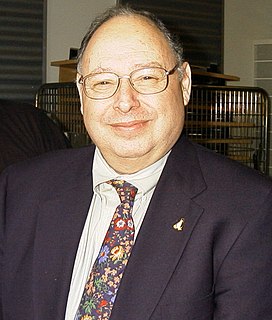 W
WPeter Henry Salus is a linguist, computer scientist, historian of technology, author in many fields, and an editor of books and journals. He has conducted research in germanistics, language acquisition, and computer languages.
 W
WJohn Morley Scholes (1948–2019) was a British computer scientist. His professional career was devoted to the development of the programming language APL. He was the designer and implementer of direct functions.
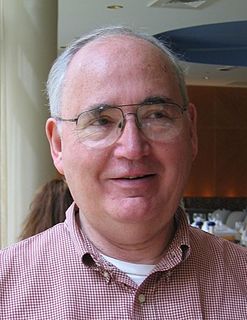 W
WDana Stewart Scott is an American logician who is the emeritus Hillman University Professor of Computer Science, Philosophy, and Mathematical Logic at Carnegie Mellon University; he is now retired and lives in Berkeley, California. His work on automata theory earned him the ACM Turing Award in 1976, while his collaborative work with Christopher Strachey in the 1970s laid the foundations of modern approaches to the semantics of programming languages. He has worked also on modal logic, topology, and category theory.
 W
WGuy Lewis Steele Jr. is an American computer scientist who has played an important role in designing and documenting several computer programming languages and technical standards.
 W
WJoseph E. Stoy is a British computer scientist. He originally studied physics at Oxford University. Early in his career, in the 1970s, he worked on denotational semantics with Christopher Strachey in the Programming Research Group at the Oxford University Computing Laboratory. He was a Fellow of Balliol College, Oxford. He has also spent time at MIT in the United States. In 2003, he co-founded Bluespec, Inc.
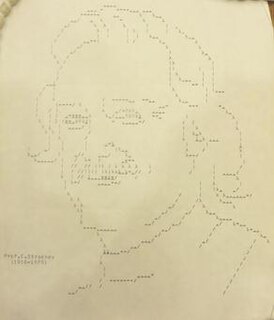 W
WChristopher S. Strachey was a British computer scientist. He was one of the founders of denotational semantics, and a pioneer in programming language design and computer time-sharing. He was a member of the Strachey family, prominent in government, arts, administration, and academia.
 W
WPhilip Lee Wadler is an American computer scientist known for his contributions to programming language design and type theory. In particular, he has contributed to the theory behind functional programming and the use of monads in functional programming, the design of the purely functional language Haskell, and the XQuery declarative query language. In 1984, he created the Orwell programming language. Wadler was involved in adding generic types to Java 5.0. He is also author of the paper Theorems for free! that gave rise to much research on functional language optimization.
 W
WNiklaus Emil Wirth is a Swiss computer scientist. He has designed several programming languages, including Pascal, and pioneered several classic topics in software engineering. In 1984 he won the Turing Award, generally recognized as the highest distinction in computer science, for developing a sequence of innovative computer languages.
 W
WStephen Wolfram is a British-American computer scientist, physicist, and businessman. He is known for his work in computer science, mathematics, and in theoretical physics. In 2012, he was named an inaugural fellow of the American Mathematical Society.